Understanding Why Your HVAC System is Leaking Water
Discovering water pooling around your HVAC system can be alarming. When you notice leaks, it’s crucial to understand the reasons behind this issue to address it promptly. Here are the major reasons why your HVAC system might be leaking water.
Clogged Condensate Drain Line
One of the most common causes of water leakage in HVAC systems is a clogged condensate drain line. This line is responsible for carrying excess moisture away from the system. When it becomes blocked, usually by dirt, algae, or mold, water can back up and leak.
How to Fix It:
- Locate the drain line, usually found near the indoor unit.
- Use a wet/dry vacuum to clear the blockage.
- Consider using a mixture of vinegar and water to clean the line periodically.
Dirty Air Filter
A dirty air filter can restrict airflow, causing the evaporator coil to freeze. When the coil finally melts, excess water can accumulate, leading to leaks.
Preventive Measures:
- Change or clean your air filter every month, particularly during heavy usage months.
- Opt for high-efficiency filters that are less prone to clogging.
Faulty Installation
If your HVAC system was not installed correctly, it might not drain properly, causing water to leak. Check for improper leveling or misalignment that could impact drainage.
What to Do:
If you suspect installation issues, contact a licensed HVAC professional to evaluate and potentially re-install your system. This investment can save you from bigger expenses in the future.
Refrigerant Issues
Low refrigerant levels can cause your evaporator coil to freeze. When the ice melts, it may lead to an overflow of water. It’s crucial to maintain the right amount of refrigerant in your system.
Signs of Refrigerant Problems:
- Increased utility bills.
- Inability to cool the house adequately.
- Ice forming on the evaporator coil.
Damaged or Rusted Drain Pan
The drain pan collects the condensation that drips from the evaporator coil. If this pan gets damaged or rusted, it may fail to hold water, causing leaks.
How to Handle It:
Inspect the drain pan regularly; if you notice rust or damage, it may need replacing. You can find replacement pans at most home improvement stores.
High Humidity Levels
In areas with high humidity, your HVAC system may struggle to handle the excess moisture. This can result in condensate overflow and leakages.
Recommendations:
- Consider investing in a dehumidifier.
- Ensure your HVAC system has the capacity to manage the humidity in your area.
Piping Issues
Leaks in the refrigerant lines or condensate pipes can also cause water pooling around your HVAC unit. These can occur from corrosion or physical damage.
Next Steps:
Inspect all visible piping. If you identify any leakage, seek professional help immediately to avoid system failure.
Addressing water leaks in your HVAC system requires prompt attention. Understanding the various causes helps in taking preventative measures and making informed decisions. Regular maintenance can significantly reduce the likelihood of encountering these issues and keeping your system running efficiently.
If you require professional help or more detailed information, visit HVAC.com or Energy.gov for insights and tips on maintaining your HVAC system.
Common Causes of Water Leakage in HVAC Systems
When your HVAC system begins to leak water, it can cause significant concern. Understanding the common reasons behind this issue can help you pinpoint the problem and take the necessary steps to resolve it. Here are several common causes of water leakage in HVAC systems that you should consider:
Clogged Condensate Drain Line
One of the most frequent reasons for water leakage in HVAC systems is a clogged condensate drain line. During normal operation, your system produces moisture that should be drained outside. When this line becomes obstructed by dirt, debris, or algae, the condensation can’t escape, leading to overflow and water leaks. Regular maintenance, such as clearing the drain line, can help prevent this issue.
Faulty Pump
If your HVAC system uses a condensate pump, a malfunctioning pump can also cause water to back up and leak. The pump is responsible for moving the collected condensation out of your home. If it fails or gets damaged, the water can overflow from the pan and create leaks. Ensure that the pump functions properly through periodic checks and, if necessary, replace it when it shows signs of deterioration.
Dirty Air Filter
Blocked air filters can restrict airflow in your HVAC system. When the airflow is limited, the evaporator coil can get too cold. This excessive cooling can cause condensation to form and drip onto the floor. To avoid this, check your air filters every month and replace them as needed, typically every three months or when you notice a significant buildup of dust and dirt.
Refrigerant Leaks
Another serious concern related to water leakage is a refrigerant leak. Low refrigerant levels can cause evaporator coils to freeze. When ice melts, it can create excess water that leaks out of the unit. If you suspect a refrigerant leak, it’s essential to contact a professional HVAC technician. They can check the system for leaks and recharge the refrigerant as necessary. Handling refrigerants requires specialized knowledge and licensing, so it’s best left to the experts.
Damaged or Rusty Drain Pan
The drain pan sits below your air handler to catch any overflow from the condensation. If this pan becomes damaged or rusty, it may not effectively collect water. Over time, a corrosion problem can lead to leaks. Inspecting the drain pan regularly and replacing it as needed can help prevent further issues.
Improper Installation
Sometimes, water leakage is the result of improper installation of the HVAC system. Poorly connected ducts, incorrect slope of the drain line, or inadequate insulation can all lead to water leaks. If your system was recently installed and you notice leaks, it may be worth having a qualified technician assess the installation to ensure everything is in order.
High Humidity Levels
High humidity can also contribute to excess water production in your HVAC system. If the environment around your HVAC is overly humid, the system may struggle to maintain comfortable levels, causing it to create more condensation than usual. Using dehumidifiers in your home can effectively counteract this problem.
Addressing water leakage in your HVAC system is essential to prevent damage to your home and maintain efficiency. If you’re unsure or unable to resolve the issue yourself, it’s advisable to seek assistance from an experienced technician.
For more information and tips about HVAC systems, visit Energy Star or HVAC.com.
By keeping an eye on these common causes of water leakage, you can maintain a better working HVAC system and avoid excessive repairs or replacements in the future.
Signs Your HVAC System Needs Immediate Attention
When it comes to your home, ensuring comfort and safety is a top priority. Your HVAC (Heating, Ventilation, and Air Conditioning) system plays a crucial role in maintaining that comfort throughout the year. However, like any mechanical system, it can exhibit signs that indicate it needs immediate attention. Recognizing these signs early can help you avoid expensive repairs and keep your environment safe. Here are key indicators that your HVAC system requires urgent troubleshooting.
Unusual Noises
If your HVAC system starts making strange sounds such as banging, clanking, or hissing, that’s a red flag. These noises can signal issues like loose components or airflow obstruction. Promptly addressing the source of these sounds can prevent further damage to the system.
Irregular Temperature Control
Another sign to watch for is inconsistent temperatures in different rooms. If certain areas feel too hot while others are too cold, it could indicate problems with the thermostat, ductwork, or even the HVAC system itself. Modern systems rely on precise temperature control, and any irregularities should not be ignored.
Increased Energy Bills
Noticing a spike in your energy bills? It might be related to your HVAC system working harder than usual. This inefficiency can be caused by various factors, such as clogged filters or a malfunctioning compressor. Keeping an eye on your energy consumption can help you catch HVAC problems before they escalate.
Constant Cycling
Does your HVAC system frequently turn on and off? If you find your unit cycling more than normal, it may be a signal of an underlying issue, such as short cycling due to thermostat problems or refrigerant leaks. Maintaining a consistent temperature is essential for your comfort, so addressing this issue is paramount.
Water Leaks
If you start to see water pooling around your HVAC unit, it’s crucial to take action quickly. Water leaks can arise from a clogged drain line or a refrigerant leak. Unattended, these leaks can lead to water damage, mold, and even structural issues in your home. An immediate inspection by a professional HVAC technician is recommended once you observe this sign.
Unpleasant Odors
Foul or strange odors coming from your HVAC system are not just unpleasant; they can indicate serious problems. Musty or moldy smells may signal a mold issue in your ducts, while burning smells could indicate overheating components. Pay attention to these warning signs and act quickly.
Physical Damage
Examine your HVAC unit regularly. If you notice any physical damage like dents, rust, or corrosion, it could affect the system’s performance. Even small issues can lead to larger problems if left unchecked. Ensure you have any damages assessed and repaired by a professional.
Poor Air Quality
If you or your family members begin to experience increased allergy symptoms or respiratory issues, it could be a sign of poor air quality linked to your HVAC system. Dirty filters or a malfunctioning system can reduce air quality significantly. Regular maintenance is essential to upkeep clean and healthy indoor air quality.
Here is a quick reference table summarizing some common signs to monitor:
| Sign | Possible Cause | Recommended Action |
|---|---|---|
| Unusual Noises | Loose parts, airflow issues | Schedule inspection |
| Irregular Temperature | Thermostat issues, duct problems | Seek professional assessment |
| Increased Energy Bills | Inefficiency due to various factors | Check system performance |
| Constant Cycling | Thermostat or refrigerant issues | Consult a technician |
| Water Leaks | Clogged drain line, refrigerant leak | Immediate inspection |
| Unpleasant Odors | Mold, overheating | Call for maintenance |
| Physical Damage | General wear and tear | Get repairs ASAP |
| Poor Air Quality | Dirty filters, malfunctioning system | Change filters and service |
Understanding these warning signs is essential for maintaining your HVAC system and ensuring your home remains a comfortable and healthy space. Regular maintenance and timely responses to these signs can significantly extend the life of your HVAC system and enhance your overall quality of life.
For more tips on HVAC maintenance and troubleshooting, visit Energy Saver or HVAC.com for expert advice and resources.
Preventive Measures to Avoid HVAC Water Leaks
Water leaks from your HVAC system can lead to significant damage, mold growth, and increased utility bills. Therefore, taking preventive measures can save you money and keep your home safe and comfortable. Here are some effective strategies to prevent HVAC water leaks.
Regular Maintenance
Ensuring regular maintenance for your HVAC system is one of the best ways to prevent water leaks. Schedule professional inspections at least twice a year. During these inspections, technicians will check for potential issues that could lead to water leaks.
- Replace air filters every 1-3 months.
- Inspect and clear the condensate drain.
- Check the refrigerant levels to avoid overflows.
Keep the Drain Pan Clean
The drain pan collects water that drips from the evaporator coil. If it becomes clogged with dust, debris, or algae, water can overflow and create a leak. Regularly inspect and clean the drain pan to ensure it is in good condition.
Inspect and Maintain Ductwork
Cracked or damaged ductwork may lead to moisture buildup in your HVAC system. Here’s how you can keep your ducts in shape:
- Inspect for visible damage or loose connections.
- Seal any gaps with duct sealant.
- Consider having your ducts professionally cleaned.
Monitor Humidity Levels
If your home is too humid, excessive moisture can lead to water leaks. Aim for an indoor humidity level of around 30-50%. You can control humidity by using dehumidifiers, particularly in areas more prone to moisture, such as basements.
Upgrade Your Equipment
Older HVAC units are often less efficient and more prone to leaks. If your system is over ten years old, consider upgrading to a newer, more energy-efficient model. Newer systems have better technology, which often includes improved drainage features. Additionally, ensure your unit is appropriately sized for your home because an incorrectly sized unit can lead to overcooling, resulting in water leaks.
Install a Float Switch
A float switch can be a little lifesaver. It automatically shuts off the HVAC system if the drain pan fills with water. Installing one can help prevent water damage by ensuring your system stops running when a leak is detected.
Seal Windows and Doors
Drafty windows and doors can lead to excess moisture inside your home. Use weather stripping to seal gaps and ensure that air doesn’t escape. Less moisture can decrease the likelihood of leaks in your HVAC system. Here are some steps to follow:
- Inspect for cracks or gaps around windows and doors.
- Apply caulking where necessary.
- Replace worn-out weather stripping.
Monitor Your System’s Performance
Keeping an eye on how your HVAC system operates can alert you to potential issues. If you notice unusual noises or changes in airflow, it’s advisable to consult a professional. Addressing problems early can prevent costly leaks.
Use Quality Insulation
Insulating your attic and ductwork can help regulate temperature and reduce condensation. Proper insulation maintains a consistent temperature, minimizing the chances of water forming in unwanted places. Here are some tips for better insulation:
- Use foam board or spray foam insulation in condensed-prone areas.
- Make sure insulation is sealed correctly to prevent moisture ingress.
Consider a Professional Audit
If you are continually facing issues with water leaks, you may want to consider having a professional energy audit completed. Trained experts can identify hidden problems within your HVAC system and suggest improvements tailored to your needs. Services like those offered by Energy.gov can guide you through the process of improving your HVAC efficiency.
By implementing these preventive measures, you can significantly reduce the risk of water leaks from your HVAC system. Regular attention to maintenance, monitoring humidity, and keeping your system clean are essential practices for long-term performance.
The Role of Humidity in HVAC Performance
Humidity plays a vital role in the performance of your HVAC (Heating, Ventilation, and Air Conditioning) system. Maintaining the right level of humidity ensures not only your comfort but also the efficiency and lifespan of your HVAC equipment. The optimal humidity range for indoor environments usually falls between 30% and 50%. When humidity levels stray too far from this range, various issues can arise.
Effects of High Humidity
High humidity levels can profoundly affect your HVAC system and overall indoor air quality. Here are a few key points to consider:
- Increased Load on the HVAC System: When the air is too humid, your HVAC system must work harder to remove the excess moisture. This increased load can lead to higher energy bills and wear and tear on equipment.
- Potential for Mold and Mildew: High humidity creates a perfect environment for mold and mildew growth. Not only can this damage your home, but it can also pose serious health risks for you and your family.
- Comfort Levels: Excessive humidity can make the air feel warmer than it is, leading to discomfort and prompting you to lower the thermostat, which only adds more stress to your system.
Consequences of Low Humidity
Conversely, low humidity can lead to its own set of HVAC-related issues:
- Dry Skin and Irritated Airways: Low humidity can cause dry skin and irritation in your throat and nose, making for an uncomfortable living situation, especially in the winter.
- Static Electricity: Dry air increases static electricity levels in your home, which can be annoying and damaging to electronics.
- Increased Dust Levels: In low humidity, dust can become airborne easily, leading to poor air quality and increased allergy symptoms.
Suggestions for Managing Humidity Levels
To optimize your HVAC system’s performance, managing humidity levels is crucial. Here are some effective strategies:
- Use a Dehumidifier: If you find that humidity levels are consistently high, investing in a dehumidifier can help maintain optimal levels.
- Regular Maintenance: Schedule regular maintenance for your HVAC system. Technicians can ensure that components like drains and filters are working efficiently to regulate humidity.
- Utilize HVAC control settings: Many modern HVAC systems come equipped with humidistats or other controls that help maintain balanced humidity levels automatically.
- Insulate Properly: Ensure that your home is well-insulated. Poor insulation can lead to humidity fluctuations that your HVAC system has to compensate for.
Signs Your HVAC Needs Attention
Be vigilant for signs that indicate your HVAC system is struggling with humidity management. Some common symptoms include:
| Sign | What It Means |
|---|---|
| Condensation on Windows | High indoor humidity levels are present; your system may be working ineffectively. |
| Musty Odors | Indicates possible mold growth due to excess moisture in the air. |
| Uneven Temperature | Low humidity can lead to temperature imbalances, causing discomfort. |
Ensuring the right humidity contributes significantly to a functioning HVAC system. If you’re facing persistent humidity-related issues, consider consulting a professional HVAC technician for advice tailored to your specific situation. They can provide insights that will not only enhance your comfort but also add years to your HVAC system’s lifespan.
For further resources on maintaining your HVAC system and managing humidity, visit Energy Saver or check out The Air Conditioning, Heating, Refrigeration News.
Your comfort and the efficiency of your HVAC system rely significantly on proper humidity management. Take the necessary steps to ensure that both you and your HVAC system can perform at their best!
DIY Solutions for Minor HVAC Water Issues
When your HVAC system starts leaking water, it can be frustrating, especially when you don’t know the cause or how to fix it. Minor water issues can often be resolved with some simple do-it-yourself (DIY) solutions. This guide will provide you with practical tips to help you address these common problems effectively.
Check the Drain Pan
The first place to look for leaks is the drain pan. This is a shallow tray located beneath your HVAC unit that collects condensation. Over time, it can get clogged with dirt or debris, causing water to overflow. Here’s how you can check and clean it:
- Turn off your HVAC system to ensure safety.
- Locate the drain pan and inspect it for any visible dirt or obstructions.
- Use a damp cloth or a wet-dry vacuum to clean out the pan thoroughly.
- If necessary, replace the pan if it’s rusted or damaged.
Inspect the Condensate Drain Line
A clogged condensate drain line is another common reason for water leaks. This line allows water to flow away from your HVAC system. If it’s blocked, water can back up into your unit. Follow these steps to address the issue:
- Locate the condensate drain line, typically a PVC pipe.
- Check for visible clogs or blockages. You may use a wet-dry vacuum to suck out any debris.
- If you still notice blockages, try using a mix of water and vinegar to clear any build-up.
- After clearing, monitor the line for proper drainage.
Examine the Air Filter
A dirty air filter can lead to reduced airflow, causing your HVAC system to freeze and eventually leak water. Regularly checking and replacing your air filter is an easy task you can do at home. Here’s how:
- Turn off your HVAC system before replacing the filter.
- Locate the air filter compartment, usually found near the air handler.
- Remove the old filter, and check its condition. If it’s dirty or clogged, replace it with a new one.
- Ensure you have the correct size and type of filter for your unit.
Look for Insulation Issues
Insufficient insulation can lead to condensation on the ducts, causing water to leak. To inspect and fix insulation problems:
- Check your ductwork for any areas where insulation is missing or damaged.
- If you find exposed metal ducts, add insulation around them.
- Use duct tape to securely attach the insulation, ensuring a tight seal to prevent temperature changes.
Consider the Humidity Levels
If the humidity levels in your home are too high, your HVAC system may struggle to manage the excess moisture, which can lead to leaks. You can address this issue by:
- Using dehumidifiers in particularly humid areas of your home.
- Ensuring that your HVAC system is set to “cool” mode to help reduce humidity.
- Inspecting windows and doors for leaks that might let humid air in, and sealing them properly.
Regular Maintenance is Key
Performing regular maintenance on your HVAC system can prevent minor water issues from escalating into larger problems. Following a maintenance schedule can lead to better efficiency and longevity for your system. Here’s a simple checklist:
- Clean or replace air filters every 1-3 months.
- Inspect the drain pan and drain line monthly.
- Schedule professional inspections at least once a year.
If these DIY solutions do not resolve the issue, it may be time to call a professional HVAC technician for more complex problems. Ongoing leaks can lead to water damage and mold growth, so addressing the situation promptly is essential.
For additional information about HVAC maintenance and repairs, consider visiting the following resources:
When to Call a Professional for HVAC Repairs
Having a properly functioning HVAC system is essential for keeping your home comfortable, especially during extreme temperatures. However, there may come a time when your system requires repairs. It’s crucial to know when to call a professional for HVAC repairs to avoid small problems escalating into larger, more expensive issues. Below are some signs that indicate you should reach out for professional help.
1. Unusual Noises
If your HVAC system starts making strange noises, it may be a sign that something is wrong. Common noises that should alert you include:
- Banging: This can indicate loose parts or a failing motor.
- Hissing: This might mean there is a refrigerant leak.
- Squealing: Often suggests an issue with the fan or motor bearings.
- Clicking: This could indicate electrical issues.
Should you hear any of these sounds, it’s wise to consult a professional HVAC technician.
2. Inconsistent Temperature
Are there areas in your home that feel much hotter or colder than others? If your HVAC system isn’t evenly cooling or heating your home, it might be struggling due to duct issues or incorrect settings.
Professionals can assess whether there are blockages in your ductwork or if your unit is simply not the right size for your home.
3. High Energy Bills
If you notice an unexplained spike in your energy bills, your HVAC system might be working harder than necessary. This could be due to:
- Dirty filters
- Aging equipment
- Leaky ducts
- HVAC systems that are not properly maintained
Getting a professional opinion can help pinpoint the issue and save you money in the long run.
4. Frequent Repairs
If you find yourself calling for repairs multiple times a year, it might be time to call in a professional HVAC technician. Frequent issues can indicate that your unit is old or nearing the end of its lifecycle. Instead of continuously pouring money into repairs, it might be more cost-effective to consider a replacement.
5. Foul Odors
Strange smells coming from your HVAC system should never be ignored. Common odors include:
- Moldy or musty: This suggests moisture in your system, which can lead to mold growth.
- Burning: This could mean an electrical issue or that dust is burning off the unit.
- Gas smell: If you smell gas, immediately shut down your system and contact an emergency service.
6. Poor Air Quality
If you or your family members start experiencing more allergies, respiratory issues, or stale air, your HVAC system could be the culprit. A professional can perform air quality tests and assess your system for pollutants or contaminants.
7. System Age
HVAC systems usually have a lifespan of about 15 to 20 years. If the system is approaching this age, it’s a good idea to have a professional check its efficiency and performance. Old units require more repairs and may not function effectively.
8. Thermostat Issues
If your home isn’t reaching the desired temperature or the thermostat is unresponsive, this could indicate a faulty thermostat. Technicians can quickly diagnose and replace it, ensuring your HVAC system runs smoothly.
9. Water Leaks
Water pooling around your HVAC unit is a significant cause for concern. This often indicates a clogged drain line or a refrigerant leak. It can result in water damage to your property if not addressed promptly, so you’ll want to call a professional at the soonest signs of leakage.
Always remember that having a well-maintained HVAC system promotes efficiency and longevity. If you find yourself facing any of these issues, don’t hesitate to reach out to a qualified technician. For reliable HVAC services, check out AHRINET or HVAC.com for trusted professionals.
Knowing when to contact an HVAC professional not only saves you time and money but ensures that your home remains comfortable year-round. Keep an eye out for these warning signs and consider scheduling regular maintenance checks to keep your system running smoothly.
Key Takeaway:
If you’ve ever wondered, "Why is my HVAC system leaking water?" you’re not alone, and understanding this can save you time, money, and headaches. The main takeaway from exploring this topic is that recognizing the signs of water leakage in your HVAC system is crucial for maintaining its performance and preventing costly repairs.
First and foremost, it’s essential to understand the common causes of water leakage in HVAC systems. These can include clogged condensate drains, dirty air filters, or refrigerant leaks. Knowing these factors allows you to take preventative measures to ensure your system runs efficiently. For instance, regularly changing air filters and cleaning drain lines can significantly reduce the risk of leaks.
Pay attention to the signs that your HVAC system may need immediate attention. If you notice water pooling around your unit, increased humidity levels in your home, or strange noises, it could indicate a problem. Acting on these signals promptly can prevent further damage and mitigate issues like mold growth and structural damage.
Humidity plays a critical role in your HVAC system’s performance. High humidity levels can lead to excess condensation and can strain your HVAC unit, leading to leaks. It’s important to monitor humidity levels and invest in dehumidifiers if necessary.
For those minor water issues, there are some DIY solutions you can try before calling a professional. Regular maintenance, such as clearing out drains and checking for blockages, can remedy small leaks. However, when the problem escalates or seems too complicated, it’s advisable to call in a professional. Skilled technicians can diagnose and resolve issues that might not be apparent to the untrained eye.
Understanding why your HVAC system leaks water, recognizing common causes, and knowing when to call for help are all critical in maintaining your system. By implementing preventive measures and remaining vigilant about your system’s health, you can ensure a comfortable and safe environment in your home.
Conclusion
Experiencing water leakage from your HVAC system can be concerning, but understanding the reasons behind it is the first step in addressing the issue. Common causes of HVAC water leaks often stem from clogged drainage lines, faulty condensate pumps, or refrigerant leaks. Recognizing the signs, such as increased humidity or water pooling around the unit, allows you to take prompt action to prevent further damage.
Preventive measures play a crucial role in maintaining your HVAC system’s efficiency and longevity. Regular maintenance, including changing filters and clearing drainage systems, can help avert many potential leaks. Additionally, being mindful of humidity levels in your home can enhance the overall performance of your HVAC system, ensuring it works efficiently without unnecessary strain.
While DIY solutions may work for minor issues, like unclogging a drain line, knowing when to call a professional is vital. If you identify persistent leaks or other troubling signs, seeking expert assistance can save you time and money in the long run. Professionals can identify underlying problems that you might miss, ensuring that your HVAC system operates smoothly.
Taking immediate steps to troubleshoot and maintain your HVAC system can make a significant difference in its performance and durability. By staying proactive, recognizing the signs of water leakage, and knowing when to seek help, you can protect your investment and enjoy a comfortable environment in your home.
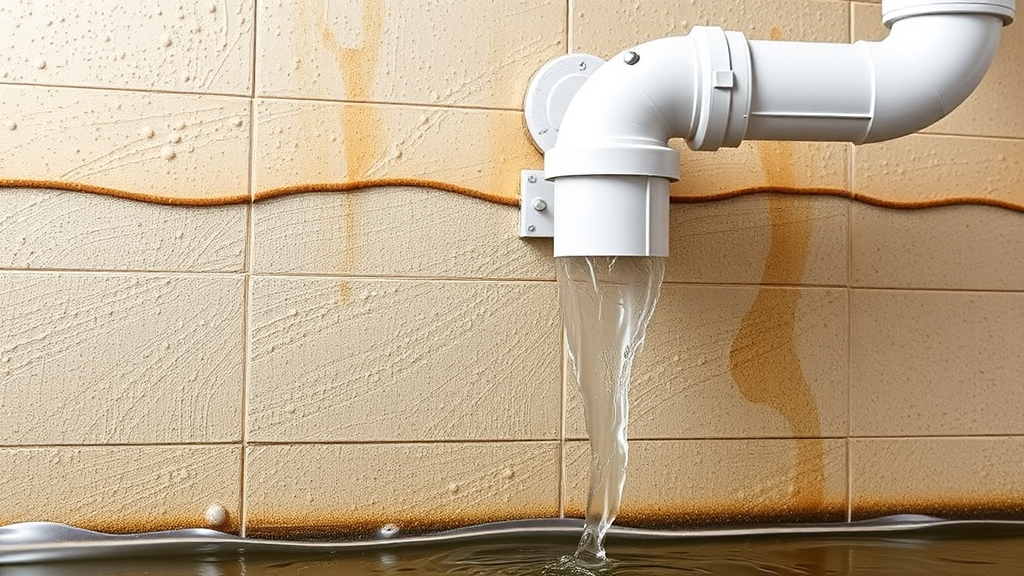
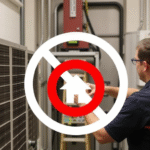
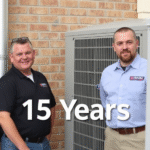
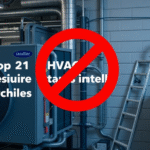
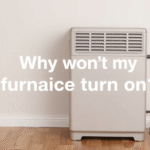
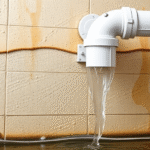
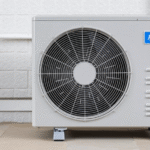
Leave a Reply